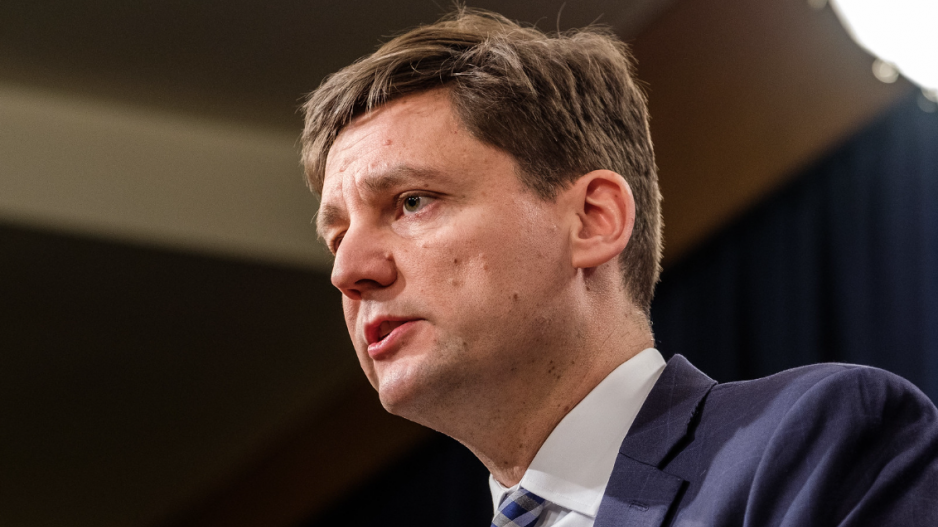Just how many voters are the BC NDP willing to lose over the issue of drug decriminalization? It’s a question New Democrats are currently asking amongst themselves, as they weigh the rapidly growing risk of carrying the controversial policy through into their provincial election campaign in just a few months.
The answer is as few voters as possible, and so the outcome seems all-but-inevitable: This version of decriminalization, as it exists today, will not survive to the election.
In the next few weeks, decriminalization will either be heavily altered by Premier David Eby — with so many public areas exempted it will functionally be like policy barely exists — or, the whole pilot project will be scrapped entirely.
A major turning point occurred Monday, when top in front of an all-party committee of MPs that they were largely powerless to do anything about people smoking crack cocaine at a beach beside a family, or smoking fentanyl inside a British Columbia hospital, or shooting heroin at a busy bus stop, or consuming hydromorphone to the point of collapse outside the doorway of a business.
The revelation was greeted with alarm and disbelief — not just by the public, but apparently by the premier as well. The issue dogged his government all week at virtually every event.
“We're engaging with the police about the concerns that they've raised there and we're going to work with them to identify solutions to these issues,” Eby said Thursday, in response to what was by then the third day of intense questioning to his ministers on the issue.
The NDP’s defence, though, holds very little water. Police told MPs they’ve been raising their concerns about decrim for the better part of two years, and the New Democrat administration failed to heed their warnings.
“We have been flagging the issue of public consumption since prior to the submission of the exemption request,” said Fiona Wilson, the president of the BC Association of Chiefs of Police.
“What's happened is exactly what we predicted would happen.”
It’s not just police that have complained. Mayors say decrim has worsened open drug use in their downtown cores. Businesses say it has led to more vandalism and crime. Nurses say it is causing more drug use in hospitals and endangering their health.
The groups all share a common belief that jail is not the best solution for a person suffering the medical condition of addiction. But they are all also deeply frustrated, and want to see major change to government direction.
Eby’s defence of the decrim program this week was muted, at best. He no longer accuses critics of fearmongering, spreading misinformation, contributing towards stigma or failing to treat those with addictions with compassion.
“We are looking at options to ensure that we are meeting the very reasonable expectations of all British Columbians,” he said Tuesday.
The premier’s options, though, are fairly limited.
He could try and water down decriminalization by banning drug use in additional public places, like hospitals, but this would require his government first winning an ongoing court challenge on this very issue — a gamble in both outcome and timing, since it’s not clear if the many court processes would be definitive before the election.
He could appeal to the federal government to use its powers to recriminalize drug possession in certain locations, though police chiefs have said this is not their preferred choice, the federal Liberals appear unwilling to run cover for the province on the issue, and such a change would also create a great deal of confusion because different drug laws would apply, in some cases, literally on different sides of the street.
He could scrap decrim entirely, which would stop the political issue in its tracks but also require admitting his government’s critics were right all along (you’d be amazed at how much of an issue this really is for politicians in decision-making).
Or, the premier could pull off a radical redirection of drug policy, perhaps following in the footsteps of Oregon, where drug use has been recriminalized but charges are dropped if a person attends treatment, or Seattle, where people are redirected to diversion before arrest and treatment before trial.
One thing you won’t see the premier do, though, is nothing. Eby has shown during his 18-month tenure that he’s not the kind of leader who puts his head in the sand on big issues and pretends he’s helpless.
On decriminalization, change is coming. Look for the premier to pivot soon on the issue.
Rob Shaw has spent more than 16 years covering B.C. politics, now reporting for CHEK News and writing for Glacier Media. He is the co-author of the national bestselling book A Matter of Confidence, host of the weekly podcast Political Capital, and a regular guest on CBC Radio.



